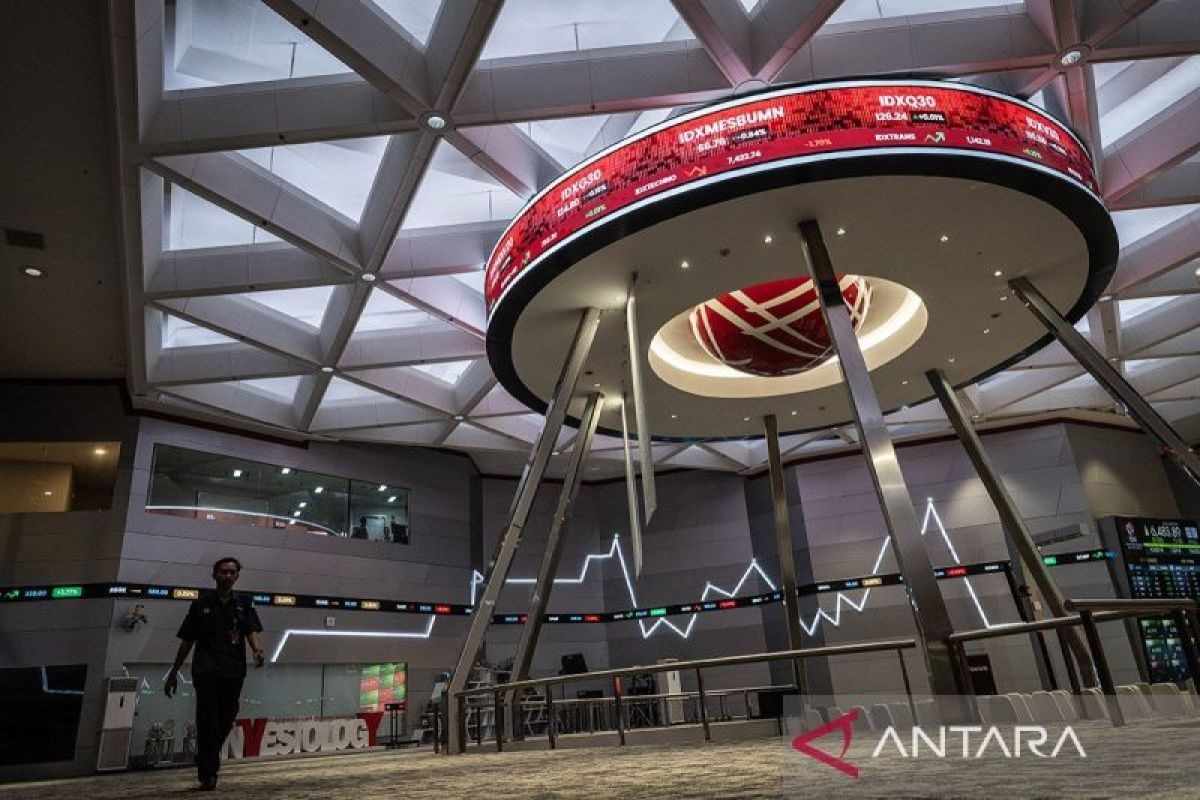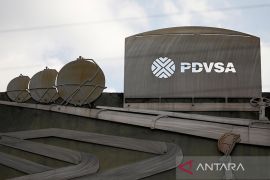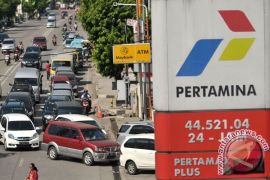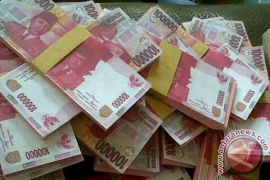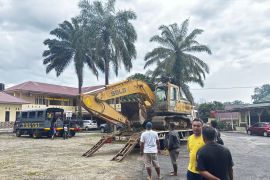Within hours of Israel's missile launch and the targeting of Iran's energy installations, oil prices surged, gold reached its highest level since April, and Bitcoin experienced renewed volatility.
Global stock indices, including the Indonesia Stock Exchange (IDX), quickly corrected, highlighting how sensitive market confidence is to geopolitical instability.
This phenomenon is nothing new. Each time a conflict erupts in a sensitive region like the Middle East -- especially one related to the world's energy supply -- the market always responds spontaneously.
However, what sets this situation apart is the complexity of the variables that follow it. On one hand, markets are awaiting the Fed's interest rate decision this week, which could influence global capital flows and exchange rates.
On the other hand, there is also a medium-term trend of weakening real economies due to mounting debt in various major countries, especially the US.
Associate director of research and investment of Indonesian securities company, Pilarmas Investindo Sekuritas, Maximilianus Nico Demus, stated that the market is also watching for the release of Chinese economic data and monitoring the increasing geopolitical tensions in the Middle East.
Market players continue to watch the escalating conflict between Israel and Iran, which have exchanged attacks for three consecutive days as of Sunday (June 15), with both sides vowing further retaliation.
Against this background, the assumption often arises that war provides certain countries with an opportunity to exploit global chaos to address their domestic problems.
Israel, for example, is currently led by a fragile coalition, and like many regimes that have existed in history, prolonging external conflicts is often a way out of internal pressure.
The US is not immune to this logic. With debts continuing to pile up and deep-rooted political polarization, involvement in global conflicts is often used to justify maintaining the fiscal status quo and expanding the military budget.
For investors, this reality presents a paradoxical situation: amid the suffering caused by war, there is also an opportunity to develop more adaptive and anticipatory investment strategies.
Oil prices
One of the most visible impacts is in the energy sector. With Iran controlling the northern side of the Strait of Hormuz, any threat to the oil shipping lanes in this region immediately drives crude prices higher.
While investing directly in oil commodities might seem attractive, in reality, this market is heavily influenced by political interests and maneuvers of organizations, such as OPEC.
Price spikes that are too sharp create high volatility, which can often be difficult for retail investors to manage. As a result, many investors turn to assets that are perceived safer, such as gold and Bitcoin.
Gold's rise above US$3,400 and Bitcoin's return to the US$105,000 range show that safe-haven assets still have strong appeal in times of uncertainty.
However, Bitcoin should not be viewed merely as a digital alternative to gold. Despite its reputation as an asset with extreme volatility, Bitcoin has now become a new hedging tool that is quite strategic for risk-tolerant investors.
Amid global stock market pressures, Bitcoin's upward movements can present significant short-term profit opportunities, although these are accompanied by heightened volatility.
While this short-term strategy may not yield the same explosive profits as a medium-to-long-term strategy, its function as a portfolio protector remains irreplaceable.
The key is not just the risk-taking but the ability to carefully read the market momentum.
From an Indonesian economic perspective, this situation places the nation in a fairly vulnerable position.
As a country with an open economic structure and high dependence on commodity exports, global price fluctuations automatically create a direct impact on national income and investor confidence.
Moreover, Indonesia's mainstay sectors, such as coal, nickel, and palm oil, are impacted by geopolitical uncertainty and the global energy transition.
It is therefore unsurprising that the domestic stock market has also weakened, as investors tend to withdraw funds from emerging markets and move them to more stable safe-haven assets.
Building a portfolio
However, even in turbulent times, Indonesians need not remain passive. In fact, increased uncertainty can provide opportunities to adjust and strengthen various aspects, including investment portfolios.
Executive director of the Center for Reform on Economics (CORE), Mohammad Faisal, assessed that rising global oil prices due to the impact of the Iran-Israel conflict could also accelerate the transition to new and renewable energy.
Behind the deep concern over war and crises that have claimed many victims, there is almost always room -- not to speculate on others' sufferings, but to act wiser in maintaining personal and national financial strength.
It is time for Indonesian investors to be more aware of the importance of diversification, actively monitor international news, and make hedging instruments a core part of their main strategy, not just an addition.
In the end, no one can control the decisions of world politicians who ignite the flames of war.
However, we can control how to respond to the consequences. The world is not heading toward stability, and current trends suggest that war will continue to be used as a tool to mask internal failures in many countries.
Hence, the most sensible choice today is to be an investor who is not only responsive to market movements but also understands the geopolitical context.
Formulating strategies should not only be based on charts and financial reports but also on an understanding of the direction the world is moving.
In times of war and global turmoil, the ability to read the situation is the greatest asset any investor can have.
Related news: Oil, gas industry needs US$20 billion annual investment: SKK Migas
Translator: Hanni Sofia, Yashinta Difa
Editor: Primayanti
Copyright © ANTARA 2025
